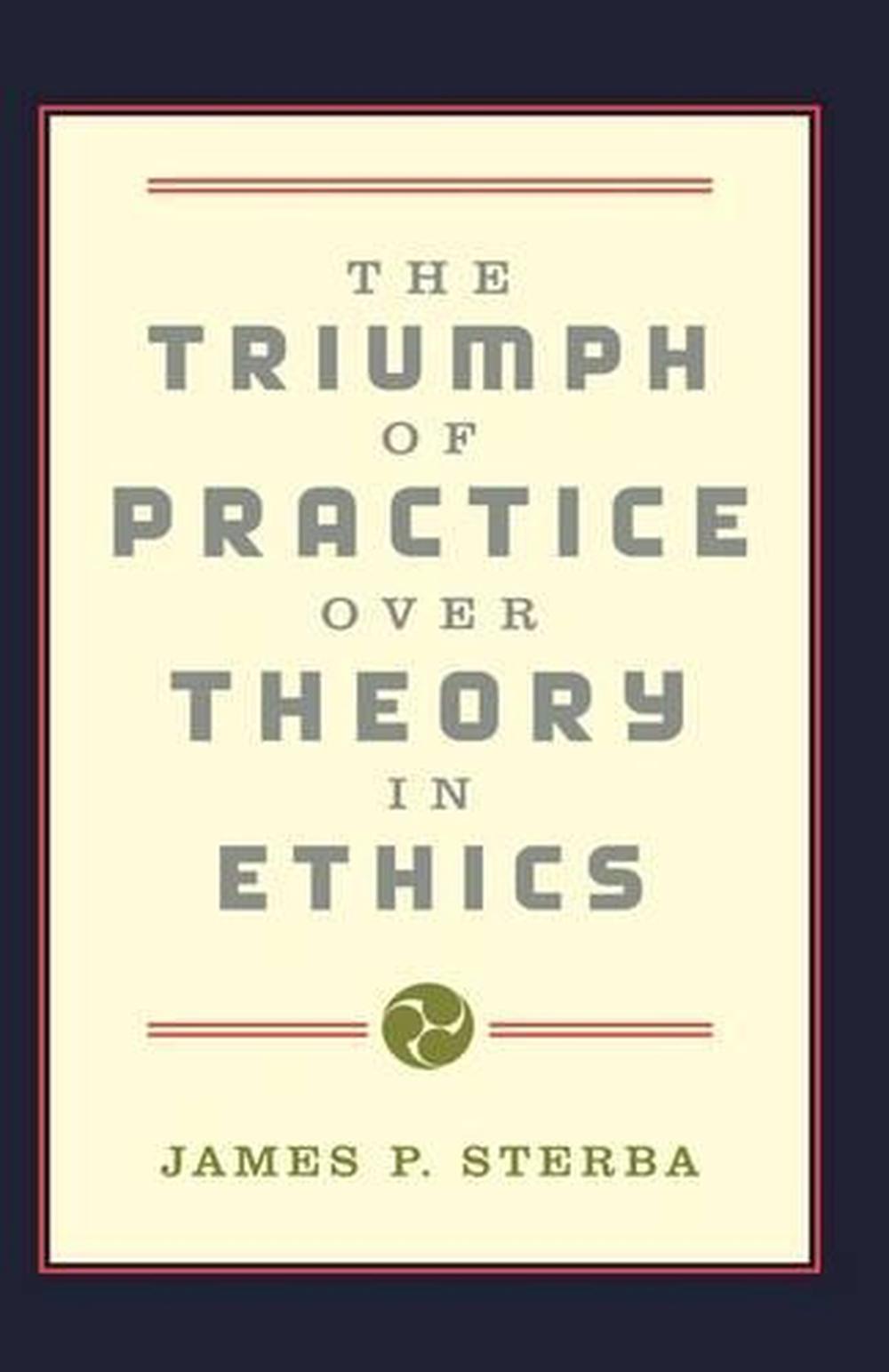
When you click on links to various merchants on this site and make a purchase, this can result in this site earning a commission. Affiliate programs and affiliations include, but are not limited to, the eBay Partner Network.
The Triumph of Practice over Theory in Ethics by James P. Sterba (English) Hardc

- Item No : 236141063927
- Condition : Brand New
- Brand : No brand Info
- Seller : the_nile_uk_store
- Current Bid : US $113.70
-
* Item Description
-
The Nile on eBay

The Triumph of Practice over Theory in Ethics
by James P. Sterba
This title combines the two most common approaches used to introduce students or general readers to ethics: the historical and the applied. Using these approaches, Sterba examines traditional ethical theories and disagreements, exploring Aristotelian, Kantian, and utilitarian ethics, as well as their contemporary defenders.
FORMAT
HardcoverLANGUAGE
EnglishCONDITION
Brand New
Publisher Description
Aristotelian ethics, Kantian ethics, and utilitarian ethics have been for some time now the main options within (Western) ethics, and the central task over the years has been to determine which of the three is right. Is this book yet another attempt to fulfill this same old task? Not at all. Sterba argues that in their ongoing attempts to put forward for general consideration the most morally defensible versions of their views, advocates of Aristotelian ethics,Kantian ethics, and utilitarian ethics have jettisoned much of what had originally distinguished their theories from each other. The upshot is that, in their current most morally defensible formulations,Aristotelian ethics, Kantian ethics, and utilitarian ethics no longer differ in the practical requirements they endorse. This makes the resolution of moral problems far easier. Sterba drives home his claims by taking up some of the most challenging and important moral problems of our time--sexual harassment, affirmative action, and international terrorism and Iraqi War II. This book is an ideal supplementary text for courses in introductory ethics, history of ethics, contemporary moralproblems, and various applied ethics courses. Featuring a lucid writing style and coverage of current moral issues, it is also captivating reading for general readers.
Promotional
In The Triumph of Practice over Theory in Ethics, James P. Sterba reconciles three theories of ethics--Aristotelian, Kantian, and utilitarian--by focusing on putting ethics into practice and taking up some of the most challenging moral problems of our time.
Long Description
Aristotelian ethics, Kantian ethics, and utilitarian ethics have been for some time now the main options within (Western) ethics, and the central task over the years has been to determine which of the three is right. Is this book yet another attempt to fulfill this same old task? Not at all. Sterba argues that in their ongoing attempts to put forward for general consideration the most morally defensible versions of their views, advocates of Aristotelian ethics,
Kantian ethics, and utilitarian ethics have jettisoned much of what had originally distinguished their theories from each other. The upshot is that, in their current most morally defensible formulations, Aristotelian ethics, Kantian ethics, and utilitarian ethics no longer differ in the practical
requirements they endorse. This makes the resolution of moral problems far easier. Sterba drives home his claims by taking up some of the most challenging and important moral problems of our time--sexual harassment, affirmative action, and international terrorism and Iraqi War II. This book is an ideal supplementary text for courses in introductory ethics, history of ethics, contemporary moral problems, and various applied ethics courses. Featuring a lucid writing style and coverage of current
moral issues, it is also captivating reading for general readers.Details
ISBN019513284XAuthor James P. SterbaShort Title TRIUMPH OF PRAC OVER THEORY INPages 224Language EnglishISBN-10 019513284XISBN-13 9780195132847Media BookFormat HardcoverDEWEY 170Birth 1943Imprint Oxford University Press IncPlace of Publication New YorkCountry of Publication United StatesDOI 10.1604/9780195132847UK Release Date 2005-01-13AU Release Date 2005-01-13NZ Release Date 2005-01-13US Release Date 2005-01-13Publisher Oxford University Press IncYear 2005Publication Date 2005-01-13Audience Professional & Vocational


















